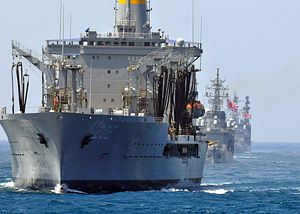While the U.S. midterm elections on Tuesday had wide-ranging repercussions domestically, the effects will also quickly begin to seep into other areas, particularly in East Asia. While the impact on TPP negotiations of a Republican-held Congress have been covered, how the change will influence bilateral relations with Japan has been given less attention. True, the fundamental nature of the relationship and the core interests of both sides will not change, but the political bandwidth of an isolated Democratic president contending with a strong Republican opposition will necessarily narrow. While some presidents, most notably Richard Nixon in recent history, have been able to dynamically wield foreign policy despite intense domestic turmoil, Barack Obama has not proven able to consistently pursue policy objectives in light of dramatic changes either at home or abroad.
Japan is showing awareness that Obama may not be able to devote the kind of concerted attention Tokyo feels is necessary over the next two years in East Asia. While statements from Chief Cabinet Secretary Yoshihide Suga continue to underline the enduring nature of the relationship, stating “we will continue to deepen our cooperation with the United States and there will be no change to that at all,” there is still concern within the administration. The Jiji Press reported a senior government official as saying “if any change occurs in the U.S. presence in Asia, China would increase its activities.”
The Nikkei reported increased insistence on the U.S. side for Japanese participation in regional affairs and security in the run-up to the election, as it became clear the Republican Party would likely gain control of the Senate. The article also emphasized that China’s recent disengagement from the Senkaku/Diaoyu Island dispute is likely due to a concerted U.S. effort to confront China on regional security matters since this spring, an effort that may now be in jeopardy if the Obama administration is increasingly tangled in domestic politics.
However, the Nikkei article misses what may be a key point in this scenario, which is that to a certain extent the administration of Prime Minister Shinzo Abe might welcome a brief period of American indecisiveness, if it helps to justify a larger role for Japan in regional security. Any serious incidents in the region will still be met with a credible and sustained U.S. response, and the election this week is only a two-year reframing of U.S. leadership before the much larger election in 2016. However, in the meantime (and possibly over the long term as well) the U.S. is seeking to enable regional allies to take on a greater share of security responsibilities.
The Abe administration is anxious for an expanded role in their bilateral relationship, particularly if it comes at the urgent behest of the U.S., which would make justifying the change to the public that much easier. In this respect, a short-term distraction for Tokyo’s closest ally could end up becoming a political tool to justify both a greater role for Japan in U.S.-Japan bilateral defense, and legislation to enshrine the Cabinet’s new interpretation of collective self-defense.

































